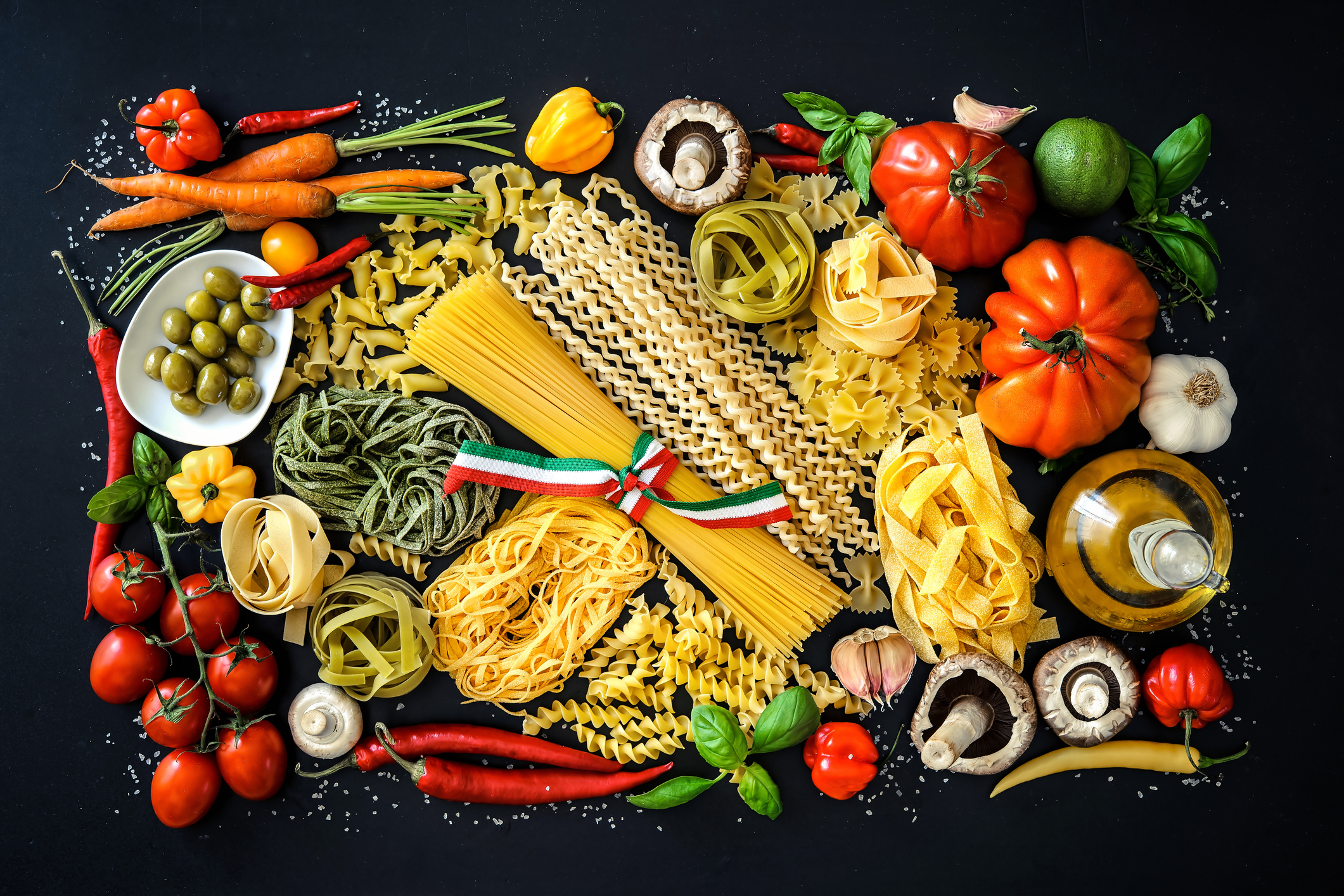An interesting international study was recently published in the prestigious The American Journal of Clinical Nutrition, featuring contributions from scientists in the Molise and Apulia regions. The study addresses a topic that directly affects our health and our relationship with food. Recently, Newsweek picked it up with the headline: “Scientists Warn of Aging Effects of ‘Harmless’ Breakfast Foods.” In her article, Pandora Dewan summarizes the findings succinctly: “What did you have for breakfast this morning? Maybe you treated yourself to a fry-up with all the trimmings, or perhaps you opted for a ‘healthy’ fruit yogurt, cereal, or a piece of toast. Well, according to new research, all of these breakfasts may be causing us to age prematurely.”
The core of the research is straightforward: a high consumption of ultra-processed foods is linked to the acceleration of biological aging. Regardless of the nutritional quality of our diets, there are foods that speed up our biological clock. Unlike chronological age, biological age reflects the true condition of our body by measuring the degree of senescence in various organs, tissues, and systems. This should serve as a warning, especially when considering foods that are often recommended by nutritionists. The study shows that it’s not only the classic junk foods to be under scrutiny, but also “healthy” options like fruit yogurts or breakfast cereals. Through a detailed food questionnaire, researchers found that biological age increases as diets include more ultra-processed foods—foods that are made partly or entirely from substances not typically used in home cooking (e.g., hydrolyzed proteins, maltodextrins, hydrogenated fats) and that often contain additives such as colorants, preservatives, antioxidants, anti-caking agents, flavor enhancers, and sweeteners. These ultra-processed foods include not only packaged snacks or sugary drinks but also unsuspecting items like industrial bread or ready-made soups. Essentially, people are biologically older than their actual age when they prioritize ultra-processed foods.
What does this study, which followed more than twenty thousand residents of the Molise region and tracked over thirty different blood biomarkers, reveal? First and foremost, it suggests that we must be cautious even with “healthy” foods. In fact, even in areas where the Mediterranean Diet has long been rooted (like Molise), a shift is occurring towards a cuisine that is increasingly detached from the idea of eating “healthy and well.” This shift is happening because more pre-processed foods are being purchased, and fewer fresh, whole ingredients are being used. This change threatens the well-being and longevity that the Italian population has traditionally enjoyed, thanks to the Mediterranean Diet.
The celebration of Italian culinary excellence, promoted by the IX Week of Italian Cuisine in the World, revolves around the theme “Mediterranean Diet and Rooted Cuisine: Health and Tradition.” The point here is this: it’s not just about adopting a balanced lifestyle, choosing local products, and protecting natural resources and traditions, which also have sustainability implications. It’s also about understanding how vital it is to rediscover the deep roots of our food culture. In other words, even though it may seem paradoxical, it’s precisely the ancient foods that are most crucial.
In a world where nearly everything is processed, where seeds are selected based on their productivity rather than their taste or nutritional qualities, where animal-based protein flours, GMOs, and synthetic meats are considered for the table, and where products once born from sweat and labor under the sun are now grown in laboratories, finding “ancient” products in the market is no easy feat.
Recent studies, however, confirm that it is essential to pay close attention to our diet. Obesity and overweight are on the rise, not just among adults but in children as well, and there is a rapid increase in intolerances to gluten, lactose, nickel, and many other allergens. This signals that our bodies, even before confronting the threats posed by microplastics—which have entered the food chain and put various organs and functions at risk, from heart health to fertility—are already struggling with ingredients that are far removed from those of earlier generations.
Therefore, the deeper meaning of this Week of Italian Cuisine is not merely to appreciate the gastronomic traditions of Italy’s regions but to recognize the importance of the food quality inherent in the Mediterranean Diet. This recognition is crucial for choosing it consciously and with urgency. Reclaiming its authenticity is essential.
C’è un interessante studio internazionale che è stato appena pubblicato sulla prestigiosa rivista The American Journal of Clinical Nutrition, a cui hanno preso parte scienziati molisani e pugliesi, che tocca da vicino la nostra salute e il rapporto che abbiamo con il cibo. Nei giorni scorsi, lo ha ripreso anche Newsweek titolandolo “Scientists Warn of Aging Effects of ‘Harmless’ Breakfast Foods”. L’articolo di Pandora Dewan, riassume il tema nelle prime tre righe: “What did you have for breakfast this morning? Maybe you treated yourself to a fry-up with all the trimmings, or maybe you opted for a “healthy” fruit yogurt, cereal, or a piece of toast. Well, according to new research, all of these breakfasts may be causing us to age prematurely”.
Il punto della ricerca è presto detto: un elevato consumo di alimenti ultra-processati è associato all’accelerazione dell’invecchiamento biologico. Indipendentemente dalla qualità nutrizionale della dieta, ci sono alimenti che accelerano la lancetta biologica del nostro corpo che, a differenza dell’età anagrafica, riflette le condizioni reali dell’organismo mappando il livello di senescenza dei vari organi, tessuti e apparati. Ciò dovrebbe metterci in guardia anche da cibi che ogni nutrizionista consiglia perché sotto i riflettori non ci sono solo i classici junker food ma anche i “salutistici” yogurt alla frutta o i cereali per la colazione. Somministrando un dettagliato questionario alimentare, i ricercatori hanno potuto verificare che l’età biologica avanza man mano che la dieta include un elevato consumo di alimenti ultra-processati ossia quei cibi fatti in parte o interamente con sostanze che non vengono utilizzate abitualmente in cucina (es. proteine idrolizzate, maltodestrine, grassi idrogenati) e che contengono generalmente additivi come coloranti, conservanti, antiossidanti, anti-agglomeranti, esaltatori di sapidità ed edulcoranti. Tra questi, non ci sono solo snack confezionati o bevande zuccherate, ma anche prodotti insospettabili come pane industriale o zuppe pronte, per fare altri esempi. In pratica, le persone sono biologicamente più vecchie della loro effettiva età man mano che privilegiano alimenti ultra-processati.
Cosa ci dice questo studio nato monitorando oltre ventimila abitanti della regione Molise con oltre trenta diversi biomarcatori ematici? Innanzitutto, che dobbiamo stare attenti anche ai cibi “sani” e che in realtà, persino là dove la Dieta Mediterranea ha sempre avuto una forte radice (come il Molise), sta prendendo piede una cucina che è sempre più lontana da quel mangiare “sano e bene” (perché si comprano sempre più alimenti pre-lavorati e sempre meno cibi base) che per secoli ha garantito il benessere e la longevità della popolazione italiana.
La celebrazione dell’eccellenza culinaria nazionale promossa dalla IX Settimana della Cucina italiana nel Mondo, quest’anno passa proprio dal tema “Dieta Mediterranea e Cucina delle Radici: Salute e Tradizione”. Perché il punto è questo: non si tratta solo di avere uno stile di vita equilibrato, di scegliere prodotti tipici e tutelare risorse naturali e tradizioni locali, cosa che ha ricadute anche in termini di sostenibilità, ma di capire quanto sia importante recuperare le origini più profonde della cultura alimentare. Vale a dire, anche se sembra paradossale, proprio gli alimenti antichi.
In un mondo che processa tutto, che seleziona i semi in base alla resa produttiva e non alle qualità organolettiche, che immagina di portare in tavola farine proteiche di origine animale, ogm e carne sintetica, che coltiva in laboratorio i prodotti che un tempo erano solo frutto di sudore e fatica sotto il sole, che precuoce e inscatola in atmosfera controllata, riuscire a trovare sul mercato prodotti “antichi”, è impresa tutt’altro che facile.
Gli studi più recenti ci dicono però, che è necessario così come serve prestare grande attenzione all’alimentazione. Obesità e sovrappeso stanno aumentando non solo tra gli adulti ma nella popolazione infantile e con velocità crescono anche intolleranze al glutine, al lattosio, sensibilità al nickel e a molti altri allergeni. Significa che il nostro corpo, ancora prima di affrontare l’impatto e le incognite delle microplastiche che, ormai entrate nella catena alimentare, mettono a rischio vari organi e funzionalità, dalla salute del cuore alla fertilità, sta facendo i conti con ingredienti che non sono più quelli di una volta.
Quindi il senso profondo di questa Settimana della Cucina Italiana non è semplicemente quello di conoscere le tradizioni enogastronomiche dei territori italiani ma capire quanto sia importante la qualità alimentare della Dieta Mediterranea, per sceglierla con consapevolezza e anche urgenza. Recuperarne l’autenticità è fondamentale.





























